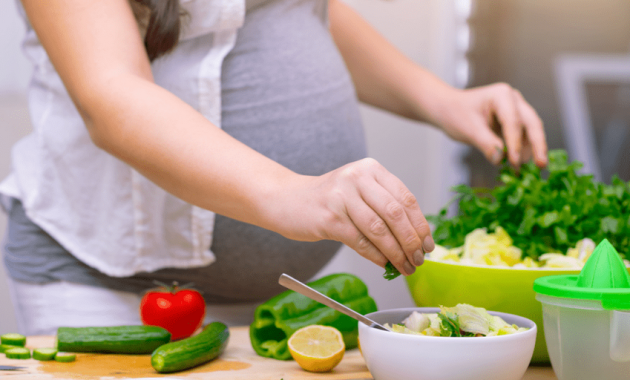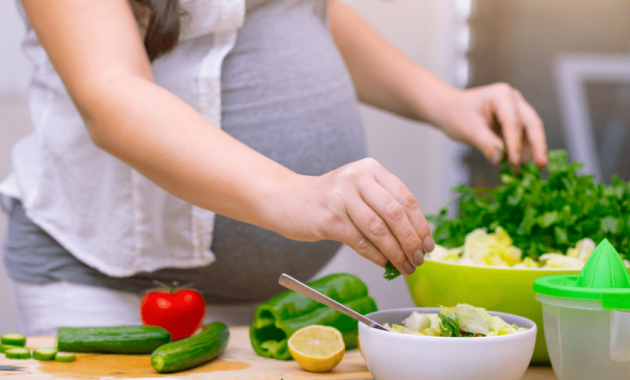
Pregnant Women: The Best Nutrition in Early Pregnancy
The early stages of pregnancy are a critical time for both mother and baby. During this period, the body undergoes rapid changes, and the baby’s major organs begin to form. Proper nutrition is essential to support these developments and ensure a healthy pregnancy. By focusing on the right nutrients, pregnant women can help promote optimal growth for their baby while maintaining their own health and well-being.
In this article, we will explore the best nutrition in early pregnancy and why it’s vital for expectant mothers to prioritize these essential nutrients.
1. Folate and Folic Acid: Supporting Early Pregnant Development
Folate is one of the most important nutrients for women in early pregnancy, as it plays a crucial role in the formation of the baby’s neural tube, which develops into the brain and spinal cord. A deficiency in folate can lead to neural tube defects, such as spina bifida. Folic acid is the synthetic form of folate found in supplements and fortified foods.
To support a healthy pregnancy, pregnant women are advised to consume 400 to 600 micrograms of folic acid daily. This can be obtained through a combination of supplements and folate-rich foods such as:
- Leafy green vegetables: Spinach, kale, and romaine lettuce
- Citrus fruits: Oranges, grapefruits, and lemons
- Beans and legumes: Lentils, chickpeas, and black beans
- Fortified cereals and grains
Ensuring sufficient folate intake in the first trimester helps reduce the risk of birth defects and supports early fetal development.
2. Iron: Boosting Blood Supply for Pregnant Mother and Baby
Iron is essential during pregnancy because it helps the body produce extra blood to supply oxygen to the growing baby. In early pregnancy, iron deficiency can lead to fatigue, anemia, and increased risk of complications. A pregnant woman’s iron needs increase as her body works harder to support both her own health and the baby’s development.
Good dietary sources of iron include:
- Lean red meat: Beef, lamb, and pork
- Poultry: Chicken and turkey
- Seafood: Shrimp, salmon, and tuna (in moderation)
- Dark leafy greens: Spinach, broccoli, and Swiss chard
- Legumes: Lentils, beans, and tofu
To enhance iron absorption, pregnant women should pair iron-rich foods with vitamin C sources, such as oranges, strawberries, and bell peppers. Iron supplements may also be recommended by healthcare providers if necessary.
3. Calcium: Building Strong Bones and Teeth
Calcium is another critical nutrient for pregnant women, as it is essential for building strong bones and teeth in the developing baby. It also supports the mother’s skeletal health by preventing calcium loss from her own bones. During the early stages of pregnancy, the body starts preparing for the baby’s calcium needs.
Pregnant women need about 1,000 milligrams of calcium per day, which can be obtained from:
- Dairy products: Milk, cheese, and yogurt
- Leafy greens: Kale and collard greens
- Fortified plant-based milk: Almond, soy, or oat milk
- Tofu and calcium-fortified cereals
Calcium helps ensure that both mother and baby have the necessary nutrients for healthy bones, reducing the risk of bone-related complications during pregnancy.
4. Protein: Supporting Tissue Growth
Protein is vital during pregnancy because it supports the growth of fetal tissue, including the brain, and helps develop the placenta. Adequate protein intake also assists in maintaining the mother’s muscle mass and promotes healthy skin and organs.
Pregnant women should aim to consume around 75 to 100 grams of protein daily, depending on their individual needs. Some great sources of protein include:
- Lean meats: Chicken, turkey, and beef
- Fish: Salmon, cod, and sardines (ensure low mercury content)
- Eggs: A versatile source of high-quality protein
- Nuts and seeds: Almonds, chia seeds, and sunflower seeds
- Legumes: Lentils, chickpeas, and beans
Incorporating a variety of protein-rich foods into your diet ensures you’re getting the amino acids and nutrients needed for healthy fetal development.
5. Omega-3 Fatty Acids: Promoting Brain and Eye Development
Omega-3 fatty acids, particularly DHA (docosahexaenoic acid), are essential for the baby’s brain and eye development. Omega-3s also help reduce inflammation and support the mother’s heart health during pregnancy. Including foods rich in DHA in the diet during early pregnancy is important for the baby’s cognitive and visual development.
Sources of omega-3 fatty acids include:
- Fatty fish: Salmon, mackerel, and sardines (choose low-mercury options)
- Flaxseeds and chia seeds
- Walnuts
- Algal oil: A plant-based source of DHA for vegetarians
Omega-3 supplements, particularly those containing DHA, are often recommended for pregnant women to ensure they meet their daily needs for this critical nutrient.
6. Vitamin D: Enhancing Calcium Absorption
Vitamin D is necessary for pregnant women as it aids in calcium absorption, supporting the baby’s bone and teeth development. It also contributes to immune function and can help reduce the risk of pregnancy complications, such as preeclampsia.
Pregnant women can boost their vitamin D intake through:
- Sunlight exposure: Spending 10-15 minutes in direct sunlight daily
- Fortified dairy and plant-based milk: Vitamin D-fortified milk, yogurt, and cereals
- Fatty fish: Salmon, mackerel, and tuna
- Egg yolks
Supplements may also be recommended if vitamin D levels are low, as it’s important to maintain adequate levels throughout pregnancy.
7. Fiber: Supporting Digestive Health Pregnant Mom
During pregnancy, hormonal changes can slow down the digestive system, leading to common issues like constipation. Fiber is essential for supporting digestive health and promoting regular bowel movements. A high-fiber diet can also help prevent gestational diabetes by stabilizing blood sugar levels.
To ensure sufficient fiber intake, pregnant women should incorporate:
- Whole grains: Brown rice, oats, and quinoa
- Fruits: Apples, pears, and berries
- Vegetables: Carrots, sweet potatoes, and broccoli
- Legumes: Beans, lentils, and chickpeas
Drinking plenty of water alongside fiber-rich foods is also important to maintain proper hydration and digestion during pregnancy.
Conclusion: The Importance of Nutrition in Early Pregnancy
The early stages of pregnancy are a crucial time for pregnant women to focus on proper nutrition. By consuming a balanced diet rich in folate, iron, calcium, protein, omega-3 fatty acids, vitamin D, and fiber, expectant mothers can support their baby’s healthy development and maintain their own well-being. Ensuring that these essential nutrients are included in daily meals will provide the foundation for a healthy pregnancy and a healthy baby.
For personalized nutrition advice, it’s always best to consult with a healthcare provider or a registered dietitian to ensure the specific dietary needs of both mother and baby are met.










